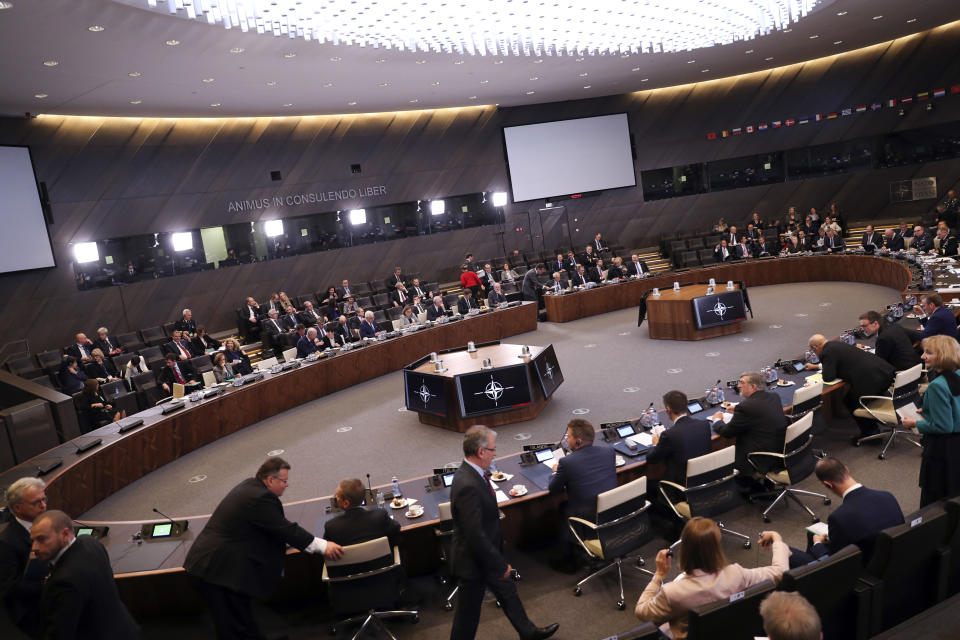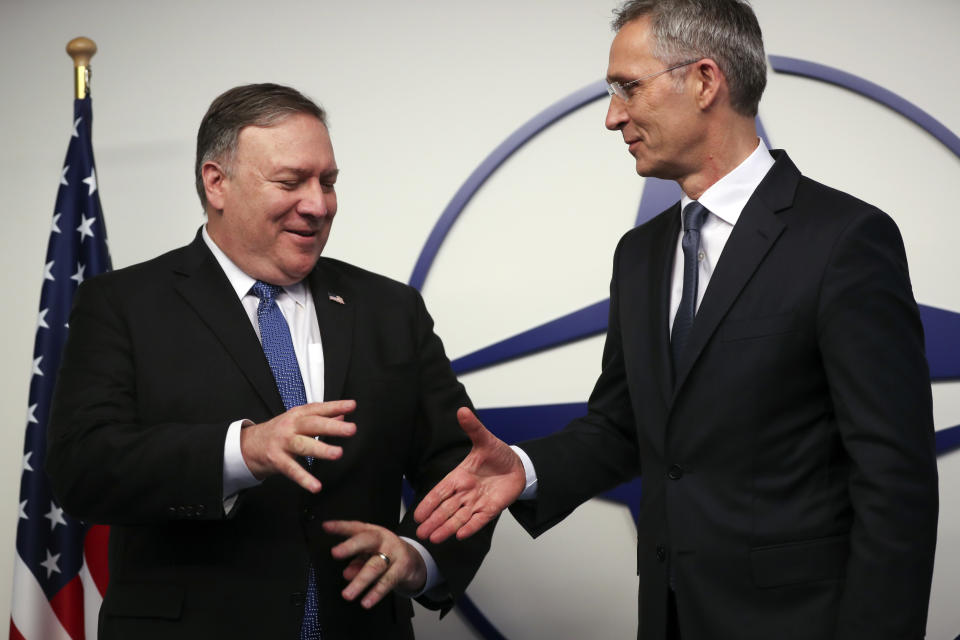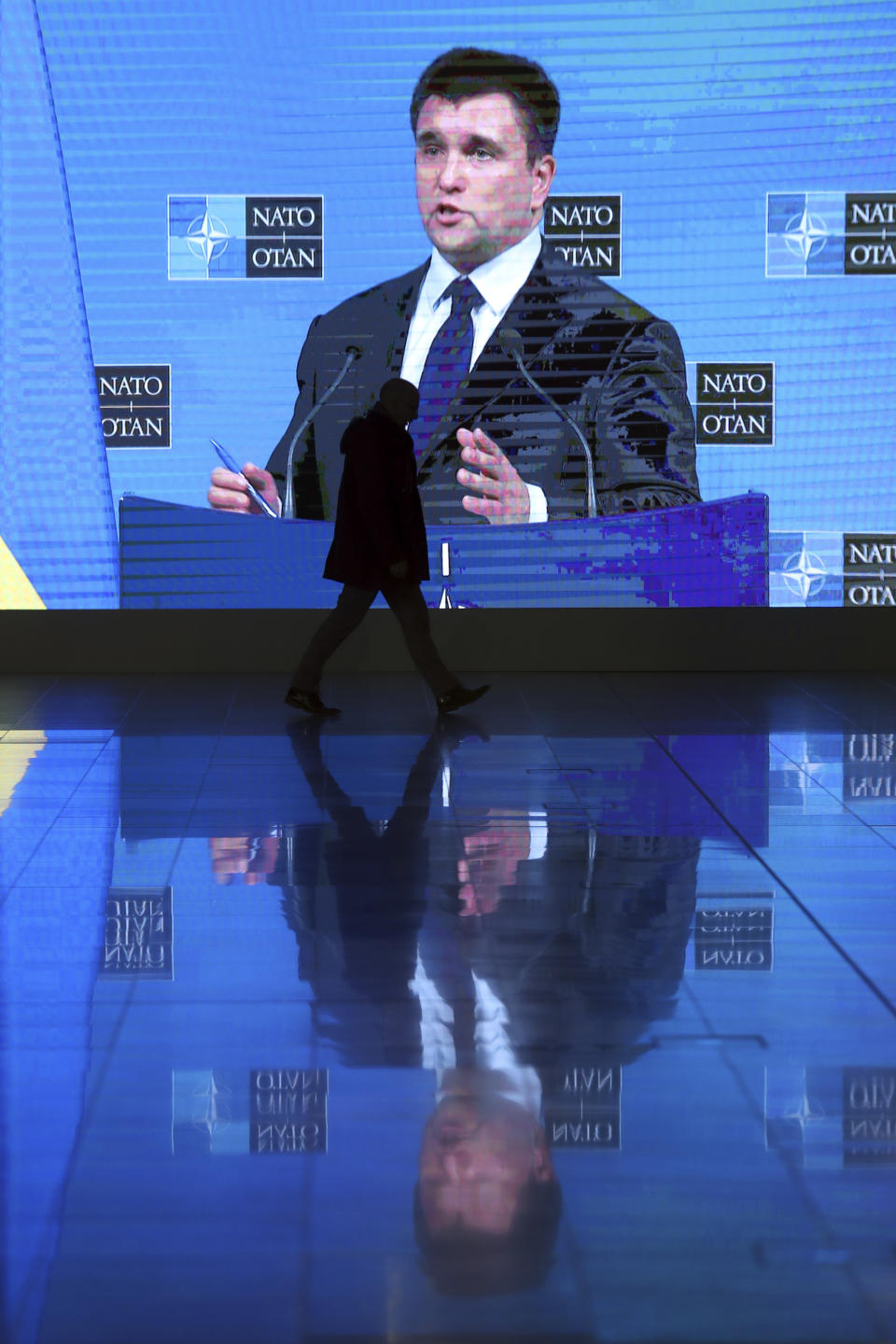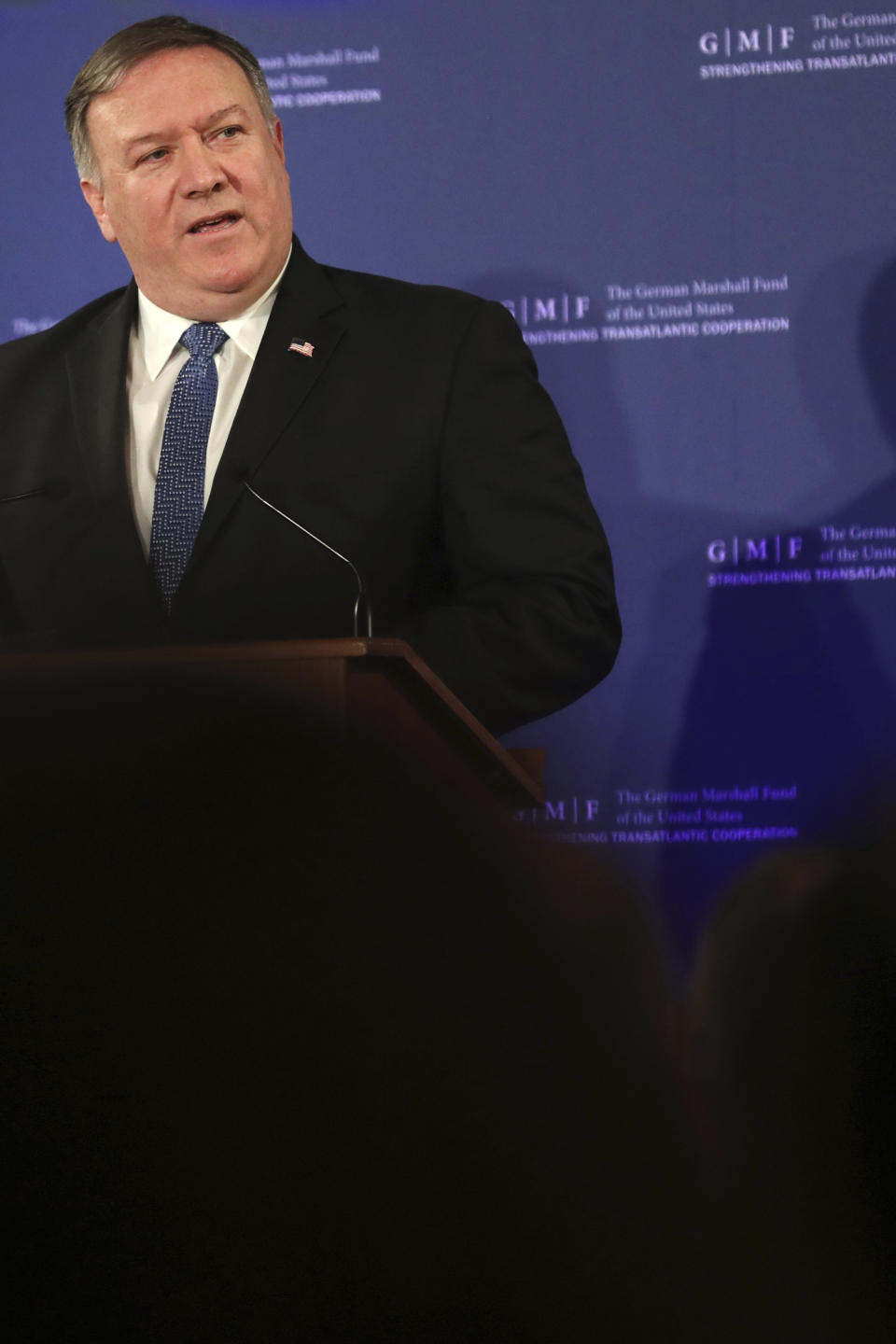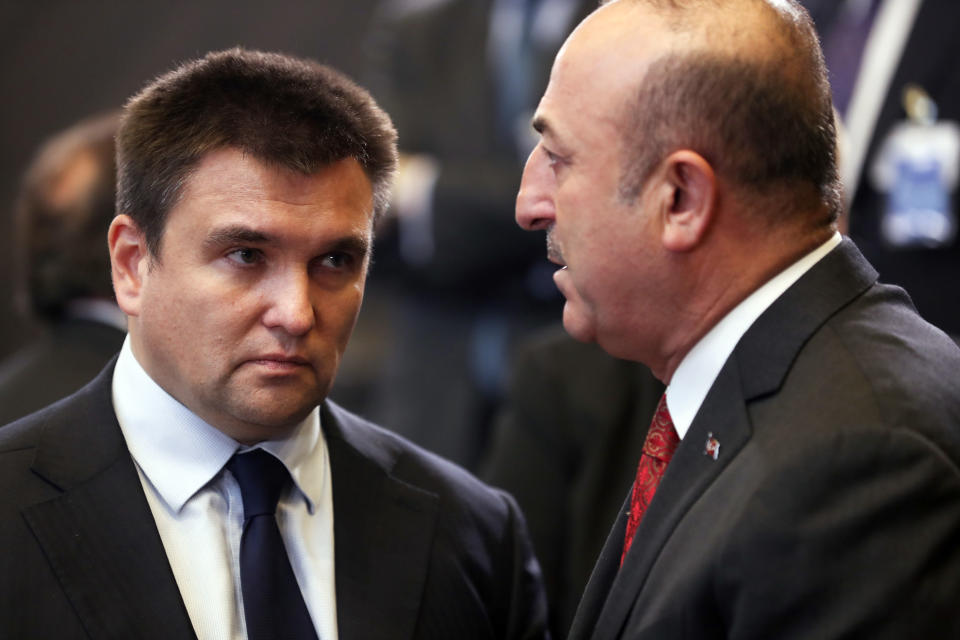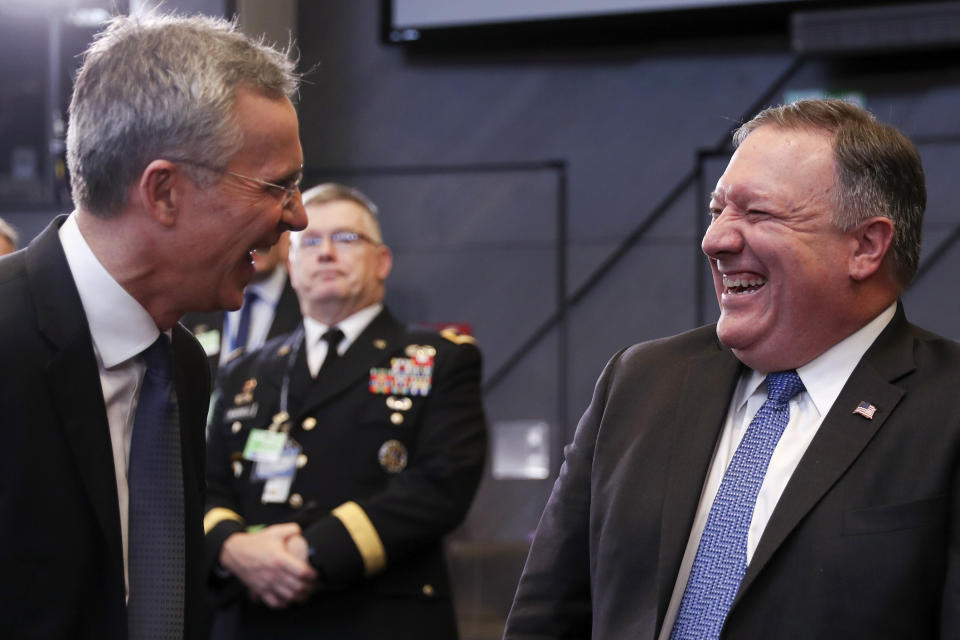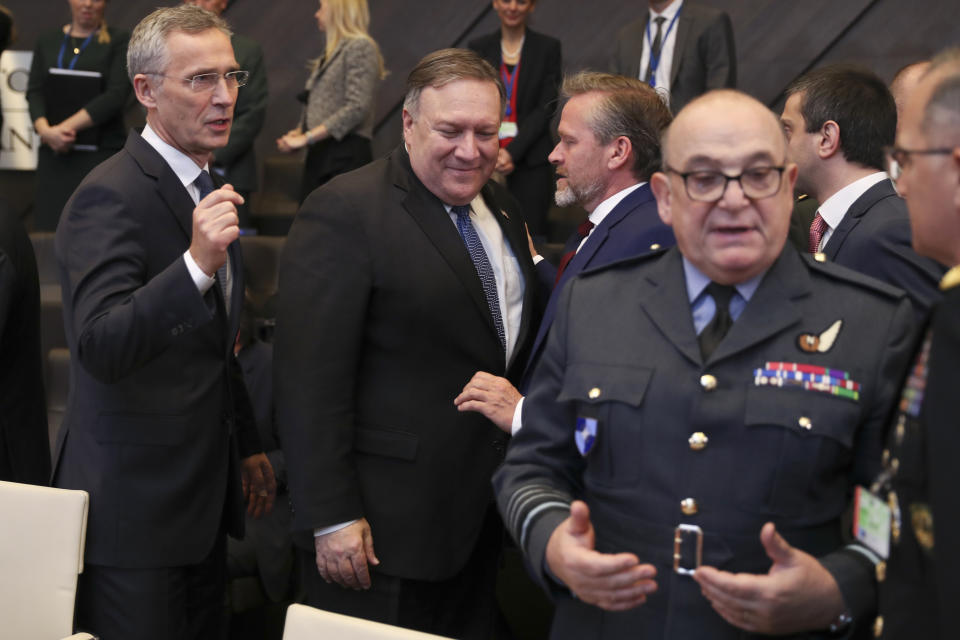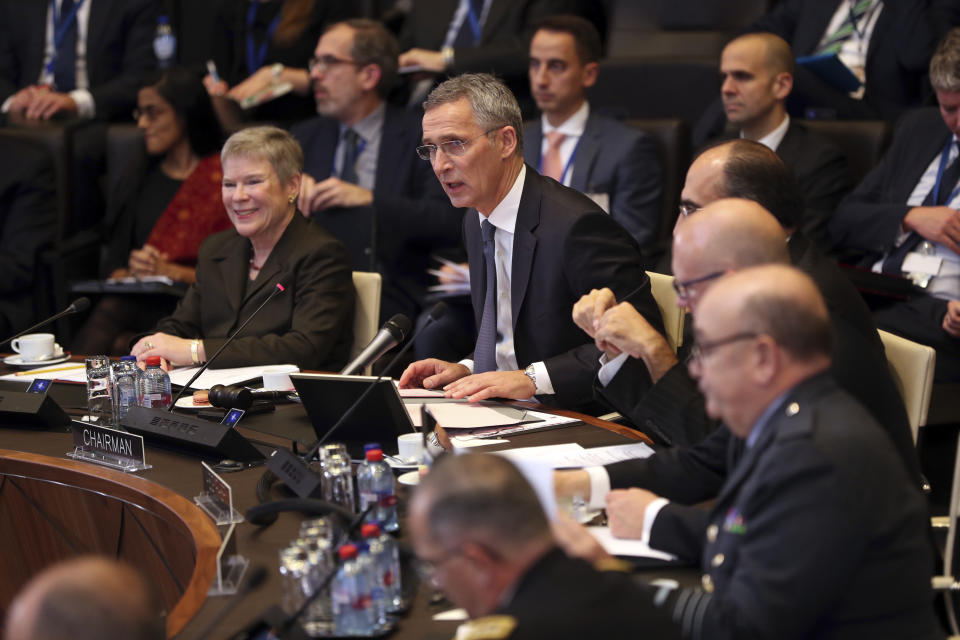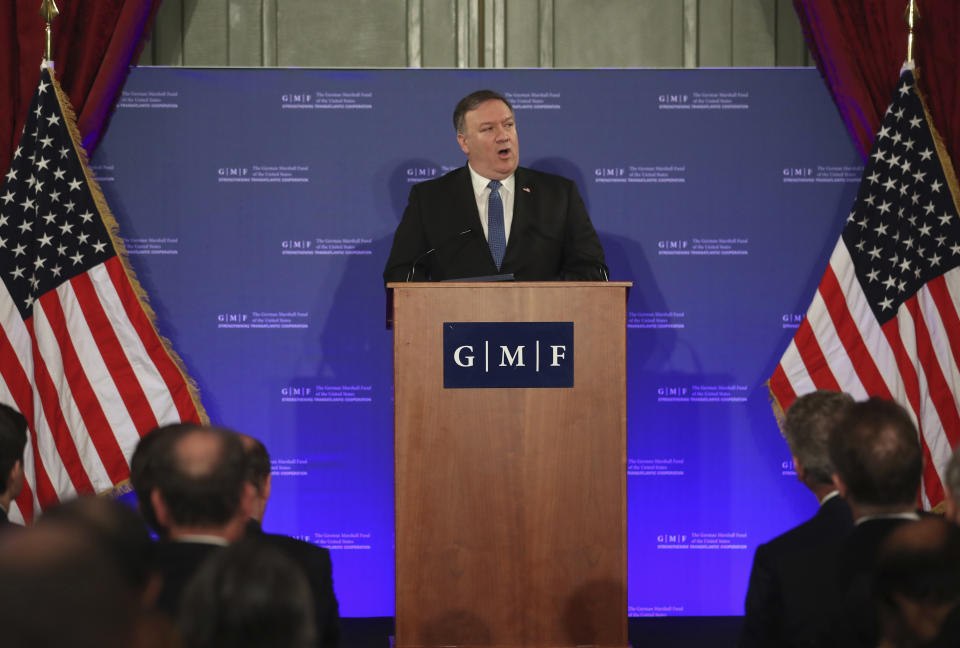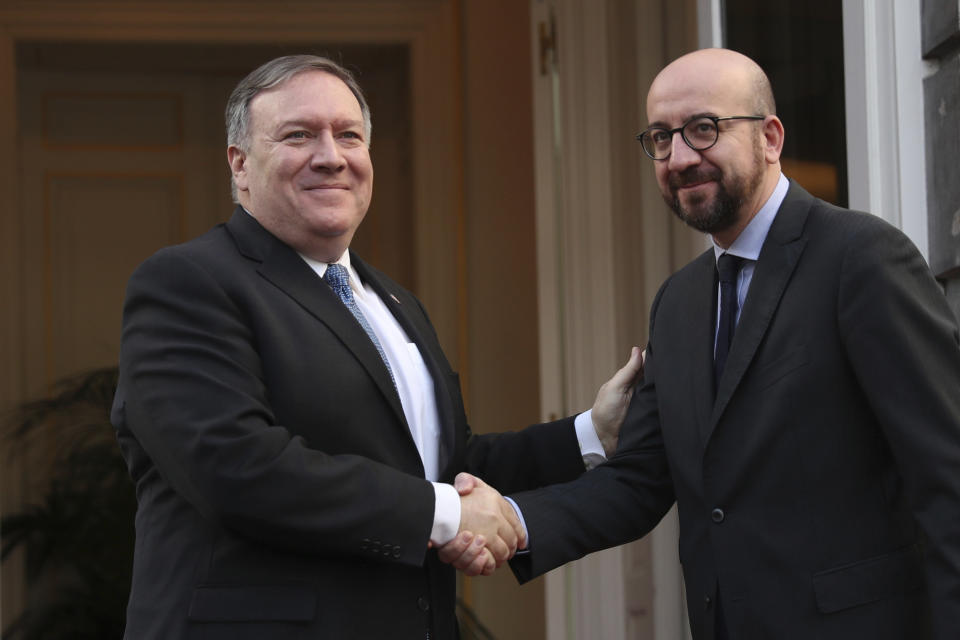The Latest: Russia says it 'strictly complies' with treaty
BRUSSELS (AP) — The Latest on a meeting of foreign ministers from NATO nations: (all times local):
7:20 p.m.
The Russian Foreign Ministry is denying U.S. and NATO allegations that Russia is violating a landmark nuclear that banned an entire class of weapons.
Foreign Ministry spokeswoman Maria Zakharova told reporters in Moscow on Tuesday: "Russia strictly complies with the provisions of the treaty, and the American side is aware of that,"
U.S. Secretary of State Mike Pompeo announced at a NATO meeting in Brussels Tuesday that Washington would suspend its obligations under the 1987 pact in 60 days due to Russia's alleged "cheating."
NATO foreign ministers at the meeting agreed with Washington's assertion that a new Russian missile system violates the Intermediate-Range Nuclear Forces Treaty (INF) signed by President Ronald Reagan and Soviet leader Mikhail Gorbachev.
Russia has repeatedly denied the U.S. claims, insisting the SSC8 missile system at the core of the allegations does not exceed ranges stipulated by the treaty.
___
6:20 p.m.
Secretary of State Mike Pompeo says the United States will suspend its obligations under a landmark nuclear treaty in 60 days in response to Russia's alleged violation of the pact.
Pompeo said Tuesday after NATO allies supported Washington's contention that Russia has violated the terms of the 1987 Intermediate-range Nuclear Forces Treaty: "We either bury our head in the sand or we take common sense action" over Russia's contravention of the pact.
Accusing Russia of "cheating at its arms control obligations," Pompeo said a six-month notice period for leaving the treaty would start in 60 days.
He said Washington "would welcome a Russian change of heart" but that he has seen no indication that Moscow is likely to comply.
___
6:05 p.m.
NATO allies say they have concluded that Russia is in violation of a landmark Cold War-era nuclear treaty, paving the way for the United States to leave the pact unless Moscow complies with it.
Foreign ministers from NATO member countries said in a statement Tuesday that they "strongly support the finding of the United States that Russia is in material breach of its obligations" under the 1987 Intermediate-range Nuclear Forces Treaty.
Secretary of State Mike Pompeo said after the decision that the United States would suspend its treaty obligations in 60 days over the alleged violations.
U.S. President Donald Trump previously threatened to pull out of the bilateral pact.
The ministers called on Russia "to return urgently to full and verifiable compliance. It is now up to Russia to preserve the INF Treaty."
___
1:35 p.m.
NATO Secretary General Jens Stoltenberg is accusing Russia of using Crimea as a platform to take control of waters off eastern Ukraine.
NATO allies struggled Tuesday to find ways to dissuade Moscow from destabilizing the former Soviet republic and respect a landmark Cold-war era nuclear treaty.
Russia annexed Ukraine's Crimean Peninsula in 2014. On Nov. 25, Russian border guards fired on three Ukrainian navy vessels near Crimea, where Russia's Black Sea fleet is based. The vessels and the crews were captured.
At talks in Brussels, Ukrainian Foreign Minister Pavlo Klimkin appealed for NATO support in the confrontation with Russia over the Black Sea and the adjacent Sea of Azov, a key commercial waterway for the country.
___
12:40 p.m.
Russia takes center-stage at NATO on Tuesday as allied foreign ministers meet to debate ways to dissuade Moscow from destabilizing Ukraine and encourage it to respect a landmark Cold-war era nuclear treaty.
U.S. Secretary of State Mike Pompeo and his NATO partners will hold talks with Ukrainian Foreign Minister Pavlo Klimkin as Kiev seeks international support for its Black Sea confrontation with Russia.
Russian border guards last week fired on three Ukrainian navy vessels in the Black Sea near the Russia-occupied Crimea. The vessels and the crews were captured.
But it is unclear what more NATO would do beyond the sea patrols and air policing it already does in the region.
Noting that Ukraine not a member of NATO, Secretary-General Jens Stoltenberg said the allies already "provide strong political support and strong practical support
But as to what more NATO would do beyond the sea patrols and air policing it already does, he said: "There is already a lot of NATO in the Black Sea."
NATO allies have helped modernize Ukraine's armed forces and boosted their presence in the Black Sea over the last year, with more ships deployed in the region and more air policing. Three NATO allies on the Black Sea — Bulgaria, Romania and Turkey — are also taking individual measures.
NATO nations, individually and through the European Union, have also imposed economic and other sanctions on Russia since it annexed Crimea, but there is little appetite among the allies to broaden those measures.
Klimkin welcomed the political support he received in Brussels, but said: "We shouldn't just stay on the level of declarations, however strong declarations are."
"We need to create a coordinated response to the actions of Russia," Klimkin said, adding that he raised "a set of practical steps with a number of proposals" at the meeting as to how NATO, Ukraine and Georgia might do that together.
He also suggested a possible ban on Russian ships entering other countries' ports if Moscow continues to block the Sea of Azov, and said that he would raise this with his EU counterparts next week.
Ukrainian authorities said Tuesday that shipping traffic has resumed on the Sea, but a senior U.S. State Department official said that at NATO "no one would see that as a satisfactory move or the end of the matter."
"Even a partial blockage from our standpoint is unacceptable both under international law and the obligations that the Russian have to the Ukrainians from their own bilateral agreements on how they manage that passageway," the official said.
Also of major concern to NATO is Russia's new SSC8 missile system. The U.S. has shared intelligence evidence with its allies that the ground-fired cruise missile could give Moscow the ability to launch a nuclear strike in Europe with little or no notice.
Washington says the system contravenes the 1987 Intermediate-range Nuclear Forces Treaty, which bans all land-based cruise missiles with a range between 500 and 5,500 kilometers (310-3,410 miles), and President Donald Trump is threatening to pull out of the bilateral pact.
"It's urgent that Russia ensures full compliance in a transparent and verifiable way, because the INF treaty is so important for our security," Stoltenberg said Tuesday.
Some European allies suspect that Trump could give notice in coming months that the U.S. is leaving the treaty. That would give Russia a notice period of six months to decide whether to comply.
